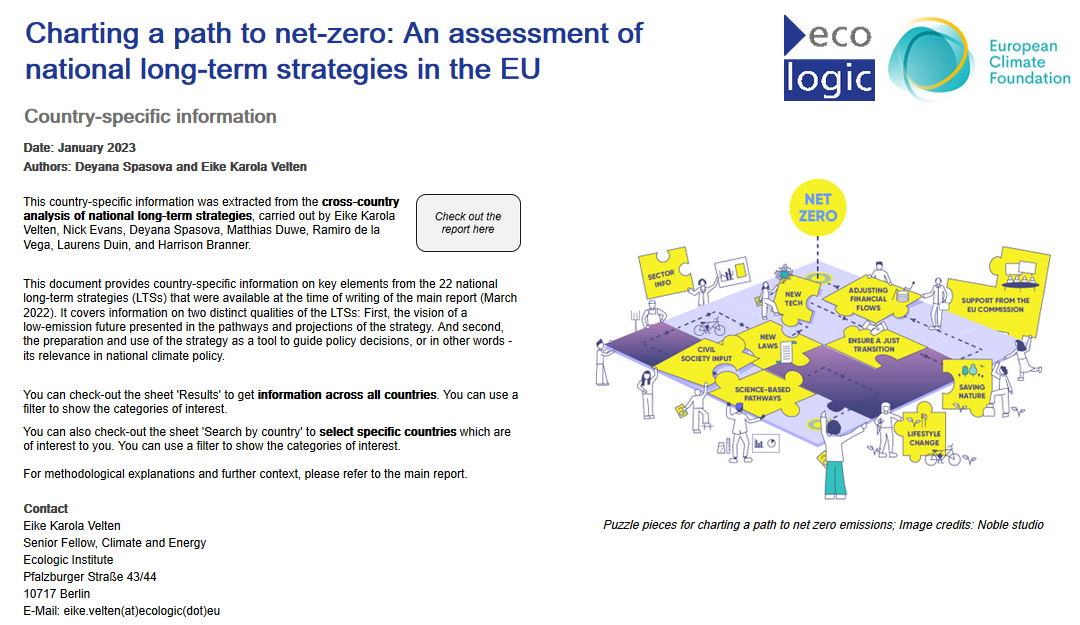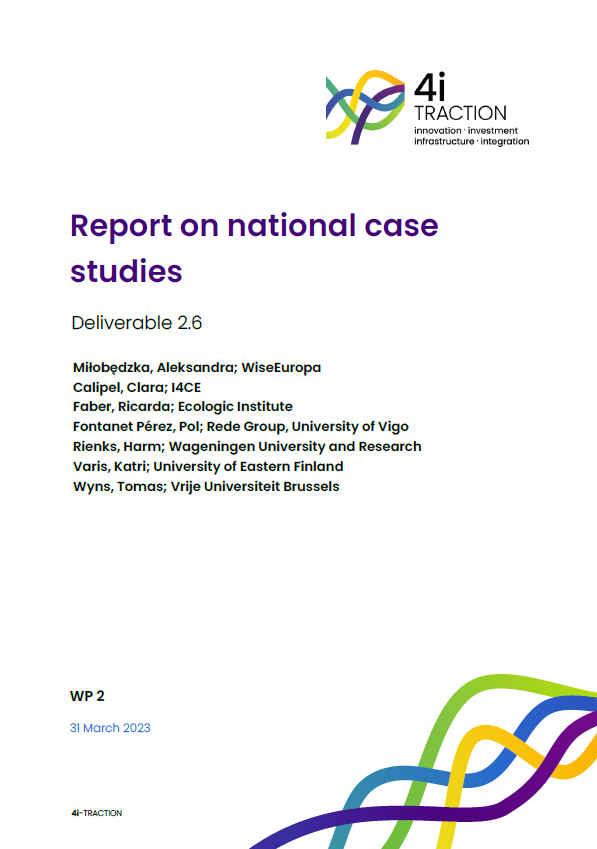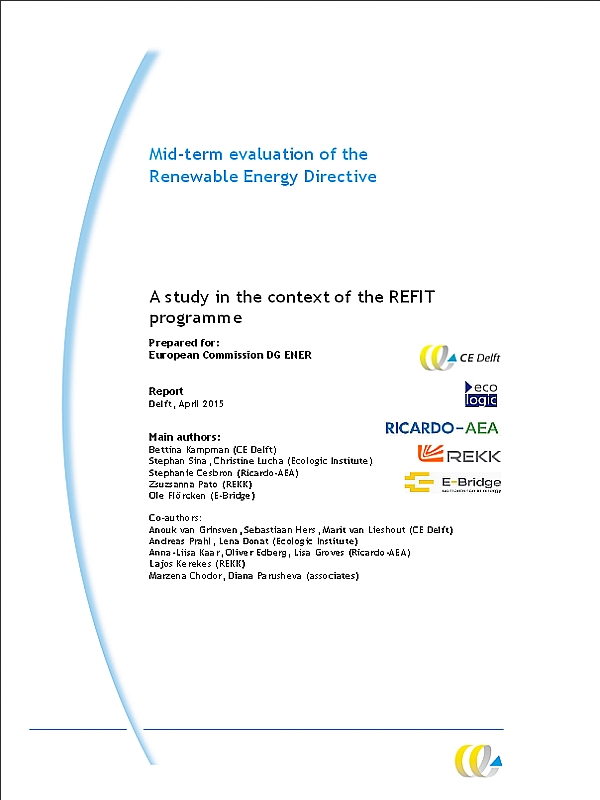Analysis of the Implementation of EU Provisions for the Clean Energy Transition in Selected Member States
- Publication
- Citation
Sina, Stephan et al. 2024: Analysis of the implementation of EU provisions for the clean energy transition in selected Member States. Ecologic Institute, Berlin.
Since 2019 the European Union has introduced a range of new laws as part of its "Clean Energy for All Europeans" package. In 2022, the RePower EU Plan was launched with the aim of accelerating the deployment of renewable energy in response to the Russian invasion of Ukraine. Combined, these measures are expected to bring considerable benefits, especially for advancing the clean energy transition and for consumers. However, delivering these benefits depends on the timely and effective implementation of EU laws at the national levels.
This report assesses the implementation status and quality of a selection of 11 provisions from 4 EU laws in 6 EU countries (Austria, Bulgaria, France, Germany, Poland and Spain). These 4 EU laws are Directive (EU) 2019/944 on common rules for the internal market for electricity (DIR), Regulation (EU) 2019/943 on the internal market for electricity (REG), Directive (EU) 2018/2001 on the promotion of the use of energy from renewable resources (RED) and Regulation (EU) 2022/2577 laying down a framework to accelerate the deployment of renewable energy (ACC).
After a brief introduction to the selected provisions (Chapter 1), this report presents country fiches on the selected countries (Chapter 3), the results of which are compiled in an overall assessment (Chapter 2).
Overall, partial transposition of the DIR and RED provisions clearly outweighs complete transposition. There was, however, only one instance of “no transposition at all” taking place. In particular, Article 16 RED has not been transposed completely in any of the selected Member States. Equally, delayed transposition of at least parts of the provisions clearly outweighs timely transposition, amounting to an average delay of more than 13 months per Member State and an average delay duration of around 19.5 months. As for the EU regulations that are directly applicable in the Member States’ legal systems, compliance could be assessed in relation to the provision of the REG where partial compliance outweighs both non-compliance and full compliance, but not in relation to the ACC provisions. Good quality of the implementation, in the sense of the implementation being considered effective, outweighs insufficient quality.
Although the findings of the implementation analysis of the selected EU provisions in the 6 Member States cannot be considered representative of the situation in the 27 Member States, some trends can be identified that suggest comparable findings in the Member States not included in this analysis.
- Successful implementation of dynamic electricity contracts largely depends on smart metering deployment. At the same time, this good example of the coherence of the provisions analysed demonstrates the importance of implementing all the provisions of the EU energy sector, regardless of whether they belong to the Clean Energy Package or to the new Fit for 55 Package.
- The organisation and duration of the permit-granting process remains particularly challenging for Member States, especially due to the multitude of legal requirements: the provisions of the RED (II), the provisional and directly applicable provisions of the ACC and the requirements of the RED III that still need to be transposed. In addition, compliance with the maximum duration of the permit-granting process cannot be ensured by law alone but requires adequate resources for the administration involved, possibly at different levels.
- Broad provisions, aspects of which are also contained in other EU provisions, are difficult to transpose into national legal systems. This may explain why Article 15 DIR and, to a lesser extent, Article 17 DIR and Article 21 RED have not been transposed completely in most of the countries analysed.
- Flexibility in distribution network development is still hindered by a "traditional" view of the energy system, especially in the mainly centralised energy systems. This is indicated by the remarkably low level of transposition of Article 32 (1) and (3) DIR in the Member States analysed.
- Countries are facing challenges replacing old capacity mechanisms with new ones that comply with Article 22 (1) REG.
- Constantly and substantially delayed transposition by a Member State makes it very difficult to assess progress, both at the Member State and EU level at any given point in time. This was revealed in the analysis of the transposition of the DIR and RED provisions, especially by Bulgaria and Poland.
The Analysis of the implementation of EU provisions for the clean energy transition in selected Member States and the Annexes to the country fiches for Bulgaria, Poland and Spain are available for download.



